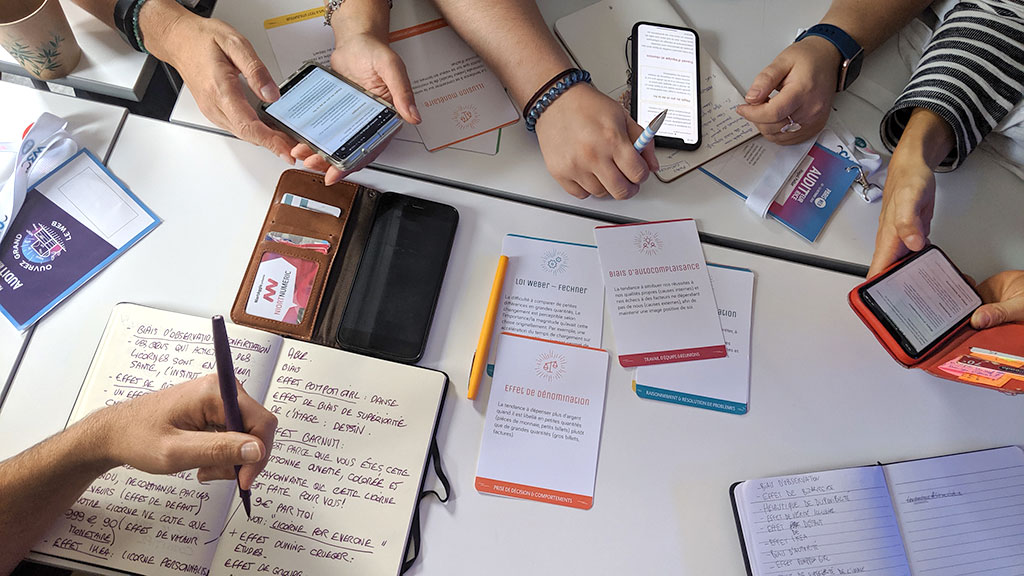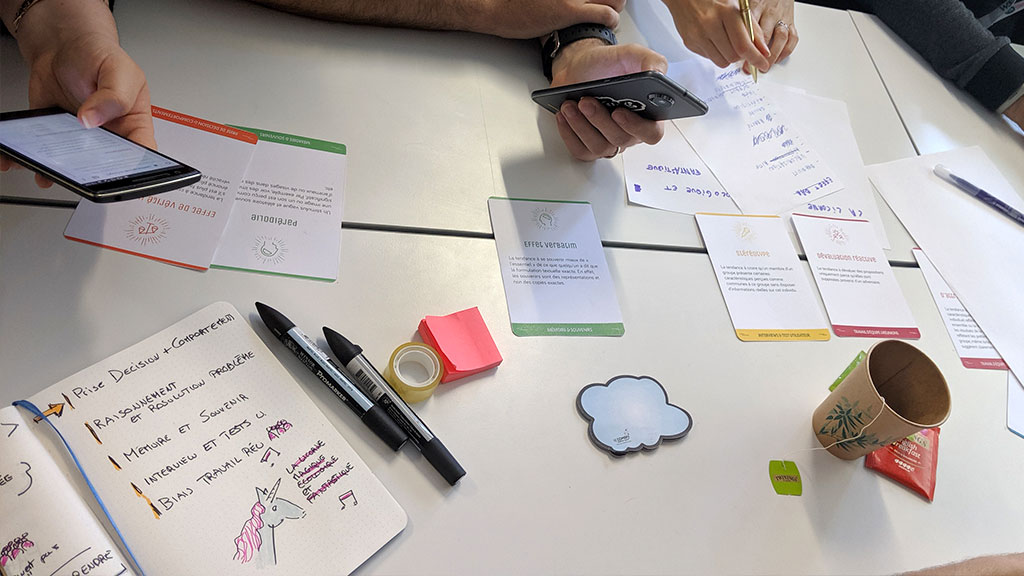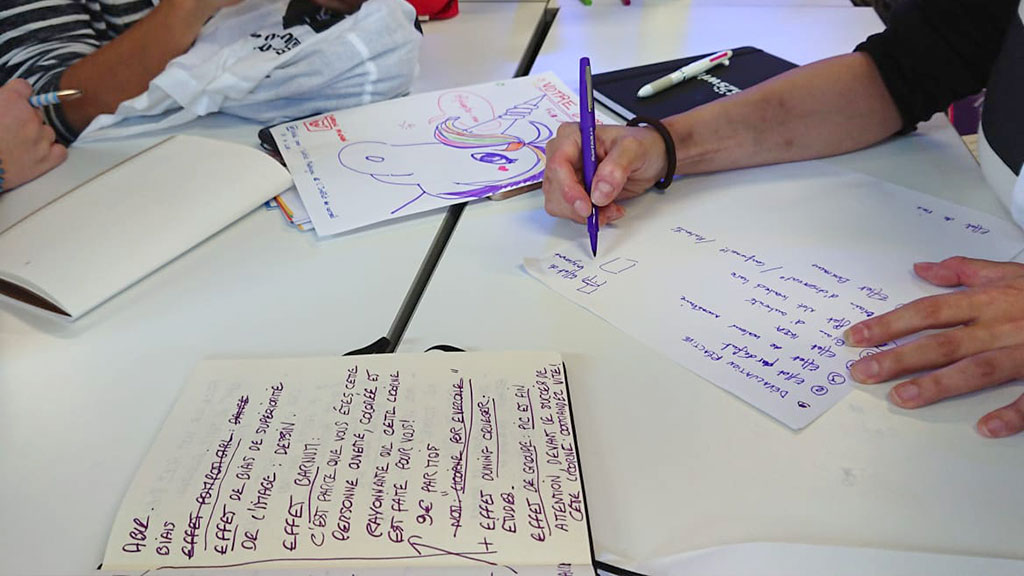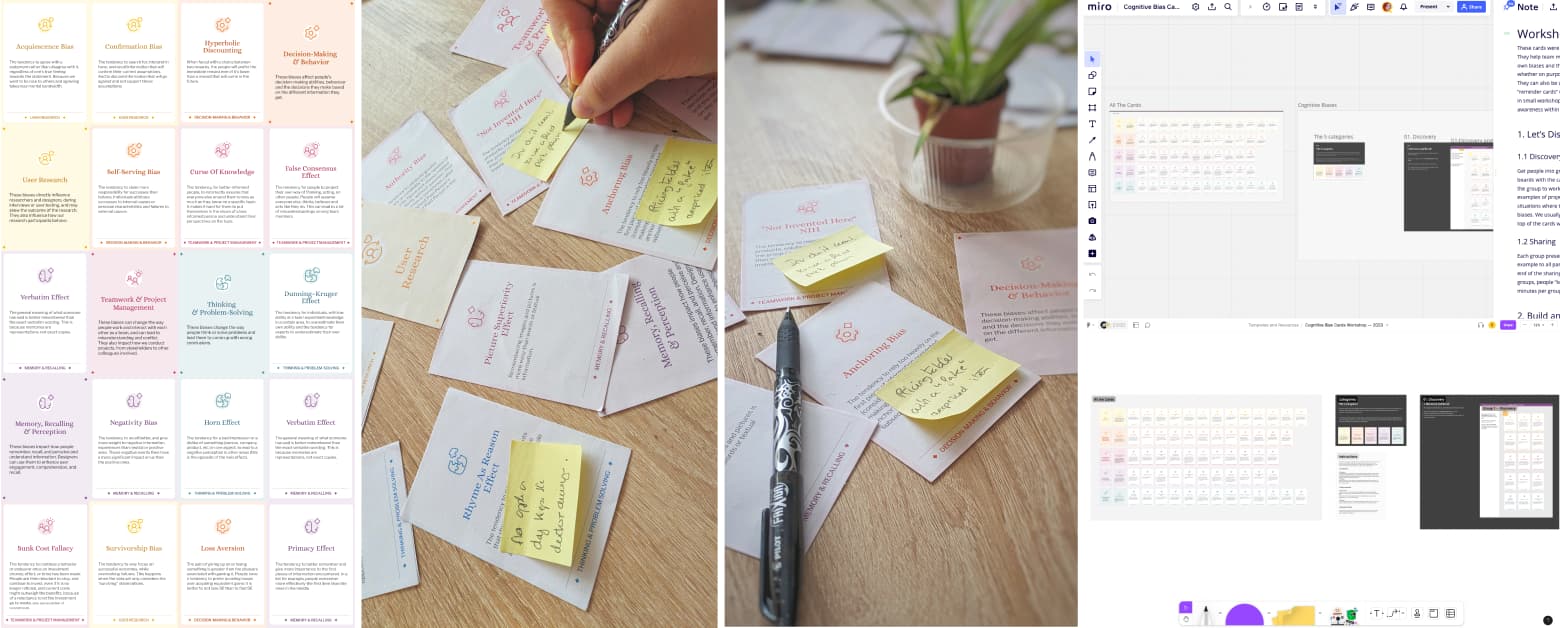
UX Cognitive Bias Cards & Workshop
A fun way to raise awareness around biases when designing products & services
Cognitive biases are psychological thought mechanisms and tendencies that cause the human brain to draw incorrect conclusions. For better or worse, they will impact and influence in many ways how user behavior in your products and services. These biases will also impact collaboration between team members and during meetings, or might influencer your user research. Whether you are creating the user experience of user interfaces or purchasing something online, it’s interesting to be aware of these biases.
We (Laurence Vagner and I, the wonderful Stéphanie Walter) created this deck of 60 cognitive biases cards and a ready to use workshop to help teams / students understand how different cognitive biases that will impact people’s behavior. Use them to improve your design process! You can also get the cards and workshop instructions.
Important notice: if you see these cards or a cheat sheet available for free online. They are now a digital product that you can download in my shop. Exact copies of the revised deck do not exist online for free. However, outdated versions do circulate so be weary of any suspicious PDF you see out there.
A “print at home” deck of Cognitive Biases Cards and a Collaborative Workshop
Get the 60 Printable Biases Cards
The list of cognitive biases is long and might look downright frightening for many people. To make this easier to digest, Laurence and I selected 60 out of the list and organized them into 5 categories:
- User Research: These biases directly influence researchers and designers, during interviews or user testing, and may skew the outcome of the research. They also influence how our research participants behave.
- Decision-Making & Behavior: These biases affect people’s decision-making abilities, behavior, and the decisions they make based on the different information they get.
- Teamwork & Project Management: These biases can change the way people work and interact with each other as a team, and can lead to misunderstanding and conflict. They also impact how we conduct projects, from stakeholders to other colleagues involved.
- Memory, Recalling & Perception: These biases impact how people remember, recall, and perceive and understand information. Designers can use them to enhance user engagement, comprehension, and recall.
- Thinking & Problem-Solving: These biases change the way people think or solve problems and lead them to come up with wrong conclusions.
We also wrote short, easy to understand description for each.

The icons for those categories come from Streamline, in case you where wondering 🙂
How to use the cards to make better design direction?
These cards were created for teaching and learning purposes. They help team members become aware of their own biases and the different biases they can induce, whether on purpose or not, to users.
- Raise awareness about biases within your teams / students. Follow our workshop instructions or build your own brainstorming session to help your team members understand the different types of biases that can affect their work.
- Use the cards as a pocket-sized mini library of biases to help with user interviews. Keep the cards on your desk or in your notebook so that you can easily refer to them when you are working on projects or making decisions. For example, you can use the cards to double-check your own biases or to help your colleagues identify their biases.
- Use the cards as a visual teaching tool. The cards can be a helpful way to teach others about biases. You can use them to create presentations, workshops, or training materials.
Get the cards and the workshop instructions
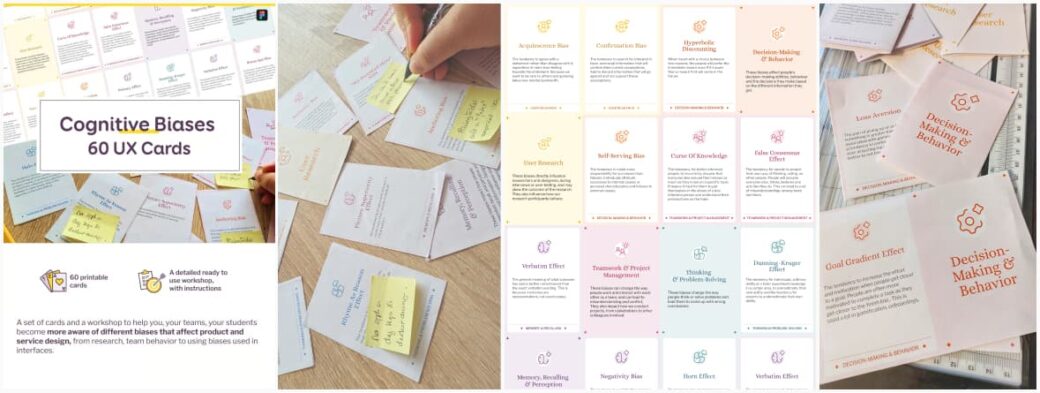
Get the 60 Printable Biases Cards
If you are interested in a remote workshop with the cards, please contact me! I have been helping teams avoid biased questions and make better design decisions based these cards.
The online version of the workshop helps you make better design choices
Due to the health situation, we also created a online version of the workshop in an “online” version on Miro.
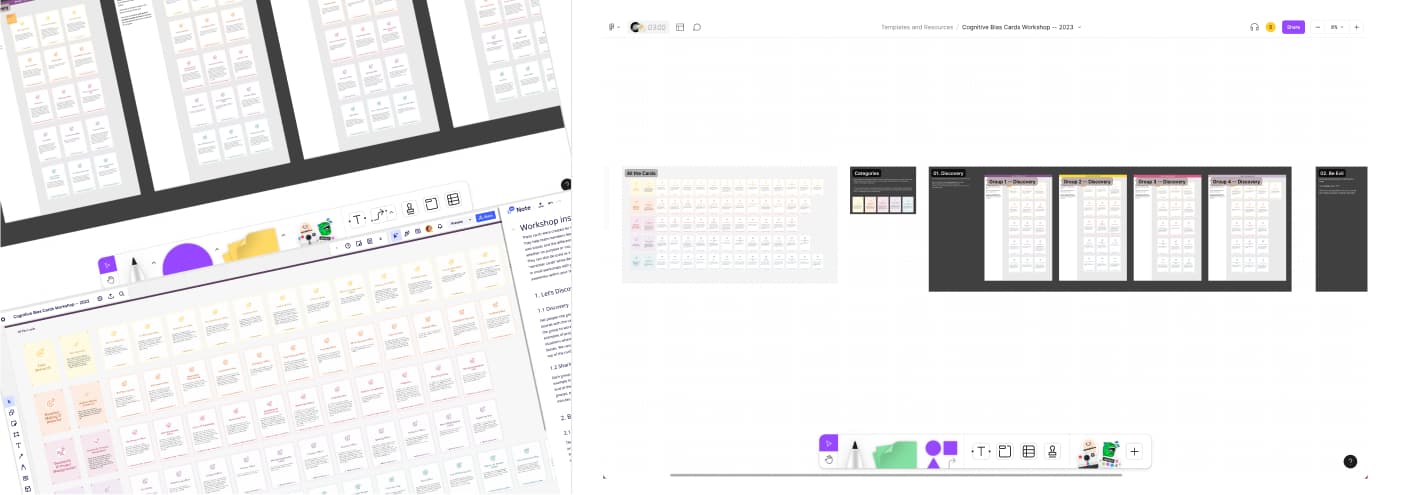
The workshop steps are the same, except we put the cards in the online whiteboard. On top of that, we add a small ice breaker at the beginning of the session. This helps people not used to tools like Miro (or Mural of Figjam) discover those without too much pressure.
For more details about the online version of the workshop: How to Facilitate a Remote Workshop on Cognitive Biases
The workshop is also in the shop. It has a Miro and a Figjam template ready for you to use with your teams and students. By getting these, you ensure you avoid the availability bias! Concretely, that bias refers to decision making based on readily available content vs seeking out more accurate or in-depth information. Yes, there is a dedicated card for that very bias in the deck.
Get the cognitive biases workshop templates
The Parisweb previous workshop
Originally, Laurence Vagner (with a V) and I, Stéphanie Walter, gave the workshop in Paris Web. The theme was “cognitive biases”. We had already given this workshop in English for our UX in Lux community in Luxembourg to help design teams. For the French version of the workshop, we created a 52 UX cards deck. Since then, faced with overwhelmingly positive feedback, we updated the design, number and descriptions of our UX cognitive biases cards.
Here are some pictures of our original cards and participants working very hard to sell us a unicorn with as much bias as possible.
More cards, inspiration, and resources
If you want to go further here a few resources:
- The “wikipedia list of cognitive biases“
- Sketchplanations explained a few cognitive biases with some awesome illustrations
- David Dylan Thomas wrote a whole book on cognitive biases called “Design for Cognitive Bias“
- The Decision Lab’s very own list of biases explained with examples, mitigation strategies, etc.
- UX Core: another great project that lists cognitive biases and links them to product strategy
- The UX psychology glossary: a collection of 47 psychological biases, design principles and UX concepts that affect the product experience
- The Psychology of Design:101 Cognitive Biases & Principles That Affect Your UX, the list of biases organized in 4 categories with examples
- The scary Cognitive Bias Code from 2016 (which inspired us to build the English workshop in the first place)
- There is also Sitback’s UX Cards (paid) and also the github Cognitive Bias Cards. All of them inspired us to create the French version of the cards.
- Pocket Biases is a small Progressive Web app that also lists the biases and helps you digest them in a more easy way
- You can also read 84 cognitive biases that will help you design better-converting products
- A list of biases and deceptive patterns used in video games
- Unpacking the Cognitive Biases that Drive SEO Content Creation : Myriam Jessier applied those biases to SEO

